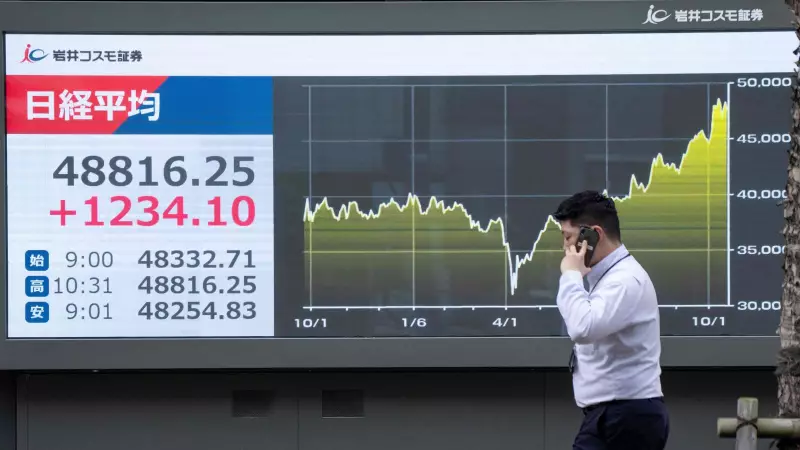
Asian markets presented a mixed picture in Tuesday's trading session, with South Korea's benchmark index leading gains while Australian shares maintained a cautious stance ahead of pivotal economic data from China.
KOSPI Leads Regional Gains
South Korea's KOSPI index demonstrated remarkable strength, climbing approximately 1% during the trading session. The bullish momentum was primarily driven by robust performances in the technology and automotive sectors, with market heavyweights showing significant upward movement.
Australian Markets Exercise Caution
Across the Tasman Sea, Australia's S&P/ASX 200 index traded relatively flat, reflecting investor hesitancy ahead of the crucial Purchasing Managers' Index (PMI) data release from China. The sideways movement indicates market participants are adopting a wait-and-watch approach, understanding China's substantial influence on regional economic dynamics.
All Eyes on China's Manufacturing Data
The financial community's attention is firmly fixed on China's upcoming PMI figures, scheduled for release later today. This manufacturing data serves as a critical barometer for Asia's economic health, given China's position as the region's manufacturing powerhouse and largest trading partner for numerous Asian economies.
Why China's PMI Matters
The Purchasing Managers' Index provides invaluable insights into:
- Manufacturing sector expansion or contraction
- Industrial production trends
- Export demand dynamics
- Overall economic momentum in the world's second-largest economy
Broader Asian Market Context
Other major Asian indices showed varied performances, reflecting the region's complex economic interdependencies. Japanese markets remained closed for a holiday, while Southeast Asian exchanges displayed moderate activity. The divergent trajectories highlight how regional markets are responding differently to global economic signals and domestic factors.
Key Factors Influencing Market Sentiment
Several elements are currently shaping investor behavior across Asian markets:
- Anticipation of China's economic recovery pace
- Global interest rate expectations
- Currency fluctuation patterns
- Commodity price movements, particularly in energy and metals
What Investors Should Watch
Market analysts suggest that the China PMI data could trigger significant movements across Asian markets. A stronger-than-expected reading might fuel further gains, particularly in export-oriented economies like South Korea and Australia. Conversely, disappointing figures could prompt profit-taking and portfolio rebalancing.
The trading session underscores the delicate balance Asian markets are maintaining between domestic economic strengths and external dependencies, with China's economic indicators continuing to play a pivotal role in shaping regional financial landscapes.






